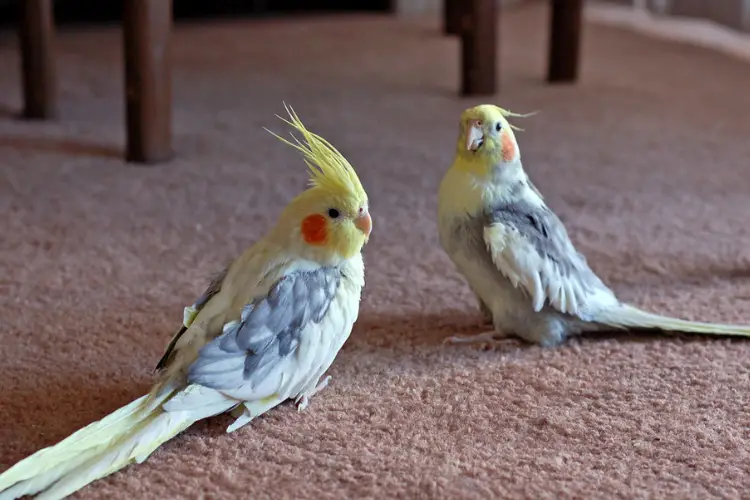Most pets kept at home naturally smell good when in a clean environment. Others, like dogs and birds, should bath regularly to achieve and maintain these smells. But what about cockatiels? What smell do they release?
So, do cockatiels smell bad? Cockatiels don’t generally smell on their own. However, if they or their cage is left unattended for some time, they will smell. Regularly misting your birds when they preen and cleaning their cage can help maintain a pleasant smell.
In this article, you will learn about cockatiel smells and why your pet might smell bad. You will also learn about various ways to do away with the odors as you focus on petting them.
Do Cockatiels Have a Smell?
Like most birds, cockatiels have a scent you can identify your pet with. This smell is not all bad, with some pet owners describing it as a baby powder and maple syrup smell. The pets can maintain this pleasant smell if their environment is clean.
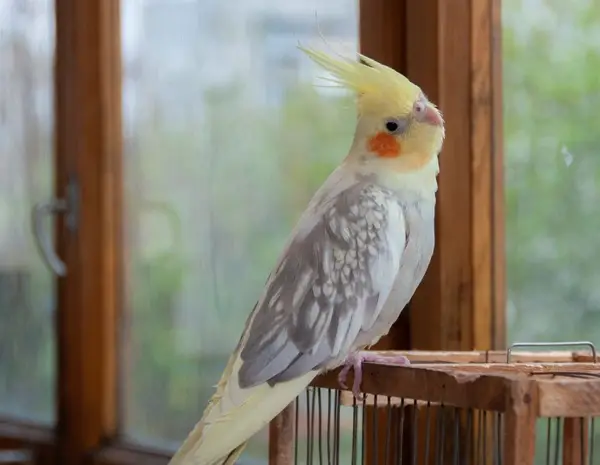
Regular baths and misting can improve your pet’s scent, especially when preening. Use some plain clean water for misting, and you can also use commercial bird shampoos. However, don’t use soap while washing these pets because it can damage their skin.
Why Does My Cockatiel Smell Bad?
Often, most first-time cockatiel owners come across the odor issue. Without the idea of why they smell, this problem can persist and take longer to solve. Below are some reasons why your cockatiel might smell bad.
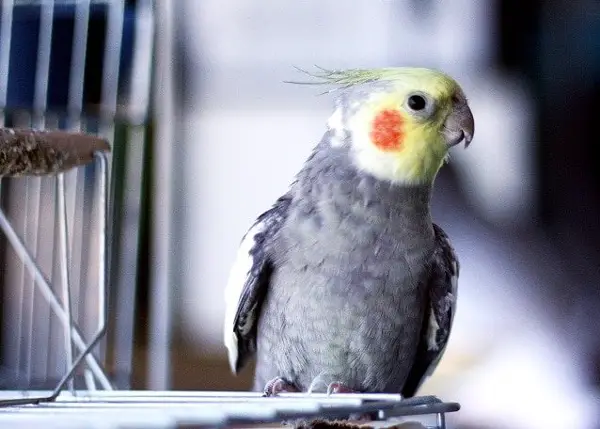
1. Dirty environment
Among the avian pets kept in homes, cockatiels are at times considered the messiest. They spill their food a lot while feeding, even when using a feeding bowl. This means the owners must regularly clean after them every day, a failure to which the cage smells.
2. Poop
Cockatiels’ poop can sometimes smell so much that the bird attracts the foul smell on its feathers. Steatorrhea is a condition caused by bacteria like E. coli that makes your pet’s excretes smell. This bacterium is found in the water your pets drink and also in old foodstuffs.
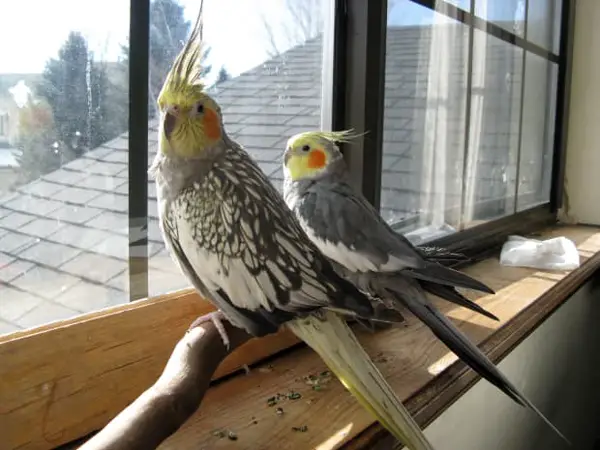
3. Hormones
A cockatiel might smell more strongly during the mating seasons. The hormones can elevate your bird’s odor, with the male birds smelling more strongly than the females.
4. Mood
A stressed bird is unlikely to undertake daily routines like bathing and preening. This means most of the smells in their feathers are not washed, which can soon make a foul smell.
5. Diet
A bird fed on fresh vegetables and fruits will retain a pure smell. On the other hand, if the foodstuffs are not stale, the bird will likely have an unpleasant odor.
Also read: Are Cockatiels Louder Than Budgies?
How Can I Make My Cockatiel Smell Better?
Living with your pet while it has a foul smell can be challenging. After realizing your pet has this scent, you must remedy it sooner. Below are some ways you can improve your pet’s smell.
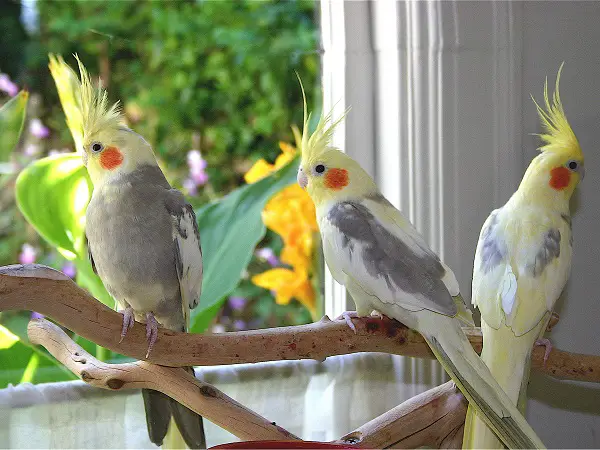
1. Regular cleaning
Improving cage hygiene is the quickest way to eliminate any foul odor. Clean the cage at least once per week using non-toxic detergents and hot water. Always rinse the bird’s cage thoroughly to keep your pet safe from irritation and the toxins caused by disinfectants.
2. Birdbaths
A bird bath is crucial for each avian pet. Birds use the baths to wash and preen, which is a must-do activity for them. Provide fresh bathing water and mist them while they preen to improve their smell.
3. Fresh Diet
Fresh diets will improve your pet’s general health by keeping them smelling good. Fresh foods are also nutritionally rewarding to your bird more than stale ones.
4. Keeping It Happy
An unhappy pet is less likely to do most activities it does while it’s happy. A happy bird will preen and bathe, and they are unlikely to attract bad smells. You can keep your pet cockatiel happy by providing new toys and regularly interacting with them.
Safe Ways of Grooming Your Smelly Cockatiel
You should be careful when making an effort to ensure your cockatiel smells good. If it’s dusty and smelly, you may be tempted to use scented soaps and fresheners. Below are the safest ways you can groom your bird without exposing them to skin reactions.
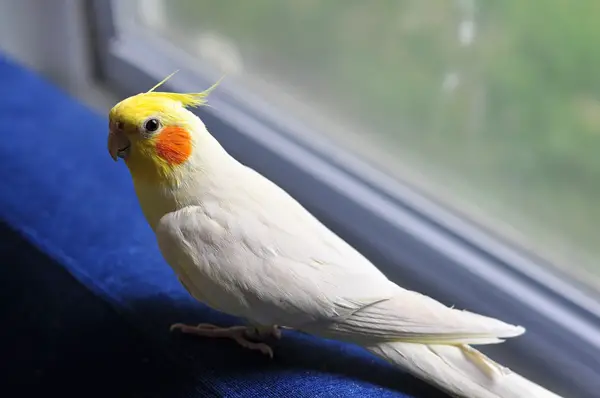
1. Keep off scented air fresheners
Sometimes your cockatiel may emit such an awful smell that you want to mask their environment with air freshners. While it may sound like a good idea, it comes with a load of risks. Most birds are sensitive to the chemical smells you expose them to. If you must use something, use undiluted white vinegar because you’re sure it’s safe.
2. Change the cockatiels’ bathing water daily
Your cockatiels enjoy bathing by themselves. Providing them clean water in a dish by their cage will come in handy. While at it, esure you change the water and clean the bowl daily, or the bird will carry bad smells from overstayed, dirty water.
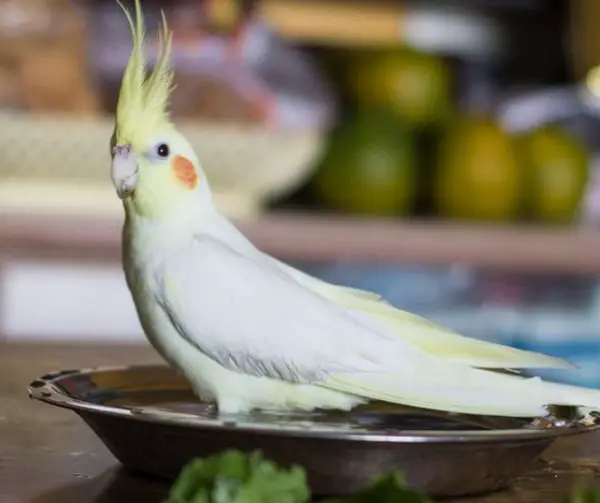
3. Clean poop the soonest possible
It’s normal for your bird to poop regularly and we talked about it triggering awful smells. One way of preventing this from happening is washing off the poop immediately. If it stays longer, your cockatiel may smear its feathers, triggering bad smells.
4. Do not use your shampoo or soap when bathing your bird
You may think antifungal and antibacterial soaps are good, but not for your cockatiel. Using soaps not recommended for cockatiels can deprive your bird of its bodily powder. If you find the need to use soap, go for mild bird soap and cleanse it exhaustively.
FAQ
Having a pet with an unpleasant smell is a stressful ordeal for any owner. However, in the quest to find a solution, many questions are asked, while some remain unanswered. For this topic, the following are the frequently asked questions and their answers.
Most avian pet lovers know wet birds generally do not smell pleasant. However, if your bird is dry after bathing but still has foul smells, there might be an issue. Always bathe your pet in clean water to keep the scent at bay. If the bird maintains the smell after a few bathes, take it to a vet.
Birds’ poop is a waste material your pet bird excretes after digestion. This means if the pet poop smells bad, something in their food was not fit for them. Bacteria found in food that can infect your pet include E. coli and Citrobacter, which are known to make poop smell.
Related: Why Is My Cockatiel Sneezing?
Outro
One of the joys of having pets is cuddling and petting them. These activities are impossible if the bad develops a foul smell that seems impossible to get rid of. To best remedy this issue, pet owners must understand why the bird might smell in the first place.
Birds can smell for many reasons, including general hygiene and diet. Being messy birds, cockatiels need more regular cleaning to maintain a favorable environment for them. However, since these birds don’t naturally smell bad, with regular cleanup, the birds can attain and keep a good smell.
